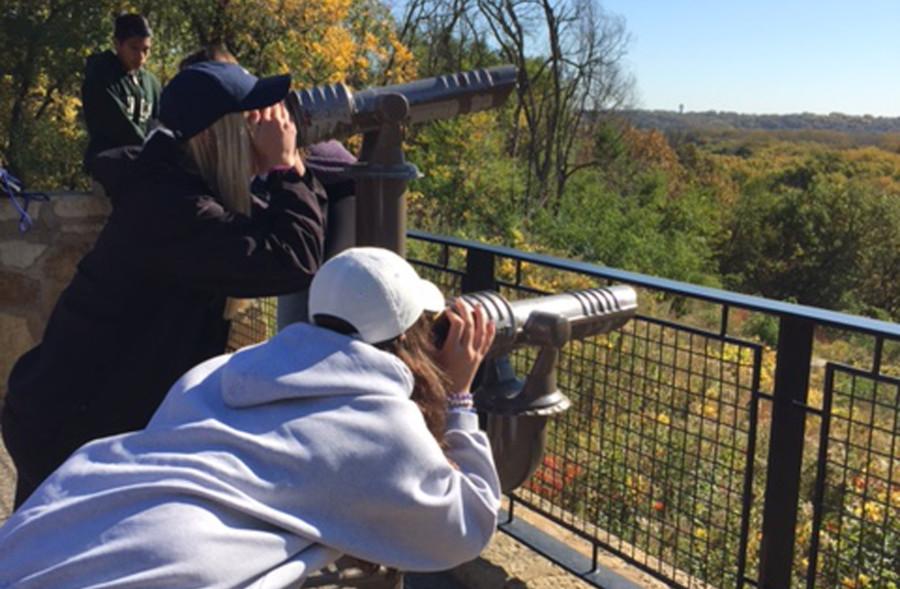AP Biology visits Minnesota Valley National Wildlife Refuge
Maddie Holicky and Abby Feitl, sophomores, look through telescopes at the view of the refuge.
On Oct. 14, sophomores in AP Biology classes led by Mr. Matthew Williamson, Science, took a field trip to Minnesota Valley National Wildlife Refuge in Bloomington to learn about Minnesota’s aquatic environment.
AP Biology students are studying water conditions necessary for trout to thrive and the pollution of freshwater areas. The students will be taking their research and using it to raise their own trout in the classroom this year.
At the refuge, students were introduced to the many ways in which the Minnesota Department of Natural Resources prevents pollution in bodies of water.
“It was a hands-on experience,” said Abigail Yousha, sophomore. “We got to see the effects of pollution on still and moving bodies of freshwater with our own eyes.”
After learning about pollution, the class ventured into the refuge and used nets to gather samples of bugs, led by tour guides at the refuge. The presence of bugs, such as the caddisfly, in the water indicated pollution levels at the refuge, as certain bugs could only live in cleaner water.
The AP Biology class then performed an activity to learn about how a variety of species is necessary for a healthy ecosystem. In the activity, students were classified as different species and had to play a “red rover” style game, with species that were less tolerant to pollution receiving additional challenges.
Finally, the class learned about invasive species in Minnesota, particularly the zebra mussel. They played a “musical chairs” game to model the growth and reproduction of invasive species as well as its negative effects on native species.
Yousha appreciated that the field trip took curriculum beyond the classroom, helping her learn about the topic in a more engaging way.
“I saw different types of plants and touched the different aquatic bugs,” Yousha said. “My favorite [activity] was the red rover game because it was interactive, but I also really liked the other outdoors [activities] because we were in such a cool environment. Without this experience, I wouldn’t have learned what I did.”





